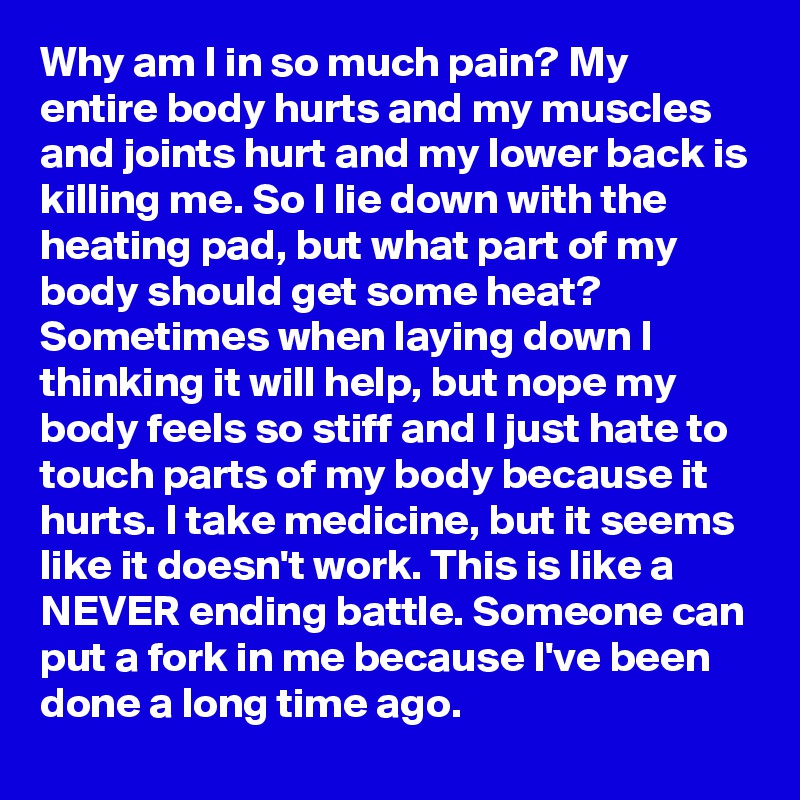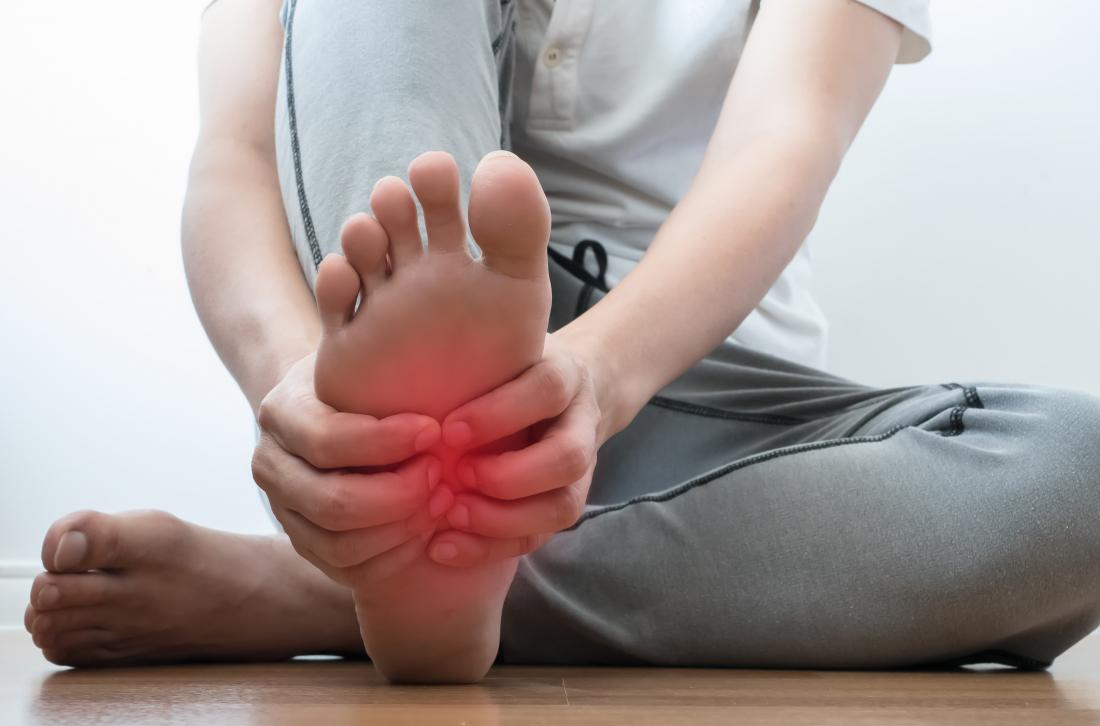In any muscle injury bleeding from damaged muscle fibres occurs inside the muscle followed by swelling and inflammation. An injury can cause damage to your muscles a strain or your ligaments a sprain.
 What Does It Mean When Your Whole Body Aches
What Does It Mean When Your Whole Body Aches
Muscle pain originates in any of the muscles in the body.

Muscles hurt all the time. Headaches numb hands and feet and abdominal pain are other agonizing indications a person may have this affliction. Common causes of muscle pain include. Everyone experiences muscle pain differently.
Tendon and ligament pain. Symptoms include pain swelling bruising weakness and muscle spasms. For reasons that arent well understood people with fibromyalgia are more sensitive to pain.
The most obvious is injury or trauma such as sporting injuries pulls and sprains. Systemic muscle pain pain throughout your whole body is more often the result of an infection an illness or a side effect of a medication. Chronic exertional compartment syndrome.
Muscle pain may arise due to injury or overexertion infections of the soft tissues or inflammatory conditions. Anxiety muscle tension symptoms can also persist when trying to relax go. The most common cause of localized muscle pain is overuse or injury of a muscle strain.
It is a disorder in which the whole body aches muscles ligaments tendons and no apparent can be found. You may feel a deep steady ache or random sharp pains. The hallmark symptom of fibromyalgia is significant muscle pain stiffness and tenderness all over your body.
Muscle pain also called myalgia is experienced by many. Fybromyalgia may include a variety of. Pain in your calf or thigh can be caused by muscle cramps a pulled or strained muscle or issues related to your nerves.
Polymyalgia rheumatica PMR is an inflammatory joint disease that causes significant muscle and joints aches and stiffness in the shoulders neck and hips. Doctors refer to this as an autoimmune disorder because in effect you mount an immune response against yourself. Joint swelling and tenderness may also occur in the wrists and fingers although it is usually mild.
Muscle pain or myalgia is a sign of an injury infection disease or other health problem. It occurs most commonly in women outnumbering men by three to one and tends to come on in your 40s. The most common body aches are headache neck and back pain muscle pain joint pain.
It usually occurs after a flue when the whole body aches and you feel constantly tired. The medical term for muscle pain is myalgia. Another possible cause is fibromyalgia which is the most common musculoskeletal condition after osteoarthritis.
There are many ways in which your muscles can be directly damaged. Strain or sprain. It can come on slowly or develop rapidly.
Ligaments and tendons are strong bands of tissue that connect your joints and bones. Muscle spasms cramps and injuries can all cause muscle pain. Some people have muscle pain all over while others have it in specific areas.
On the other hand viral infections like influenza the flu may cause systemic muscle pain as can taking certain medications or having a disease like fibromyalgia or hypothyroidism. A number of conditions can be associated with generalized aches and pain such as influenza that are perceived to be muscle pain. Anxiety muscle tension symptoms can appear for a few brief moments then disappear can last for minutes or hours before they relax or can be stiff tense or painful persistently.
According to WebMD chronic muscle pain is likely caused by a condition known as myofascial pain syndrome or MPS. Some infections or tumors may also lead to muscle pain. Rheumatoid arthritis occurs when your body starts to reject your joints.
Your leg muscles are some of the hardest working muscles in your body. This makes the muscle less strong and also painful to use. And also neuropathic pain which occurs when the nervous system doesn t.

/how-is-bacterial-vaginosis-treated-3133254_final-f9226312fa284766ba2d72bda8903b8f.jpg)







/sweating-and-night-sweats-in-pregnancy-4687125-v1-7fa94eb33ce240dfa9d6ed2de4ca8f27.png)


